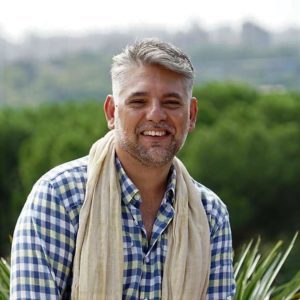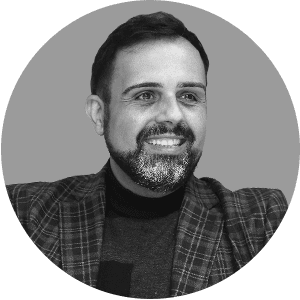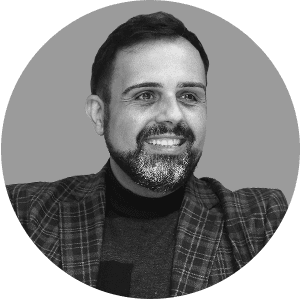 Nuno Pombal, Project and development services from the Business Development Services department of Aura Ree Portugal and Spain
Nuno Pombal, Project and development services from the Business Development Services department of Aura Ree Portugal and Spain
Nuno Pombal, who was trained and had plenty of experience in interior architecture and construction, tells us about the challenges with permanent contact between investors and owners and lifts the veil on some of the most interesting projects on which he is working. These demonstrate the differences he intends to introduce to the market, including the most dynamic and challenging sectors.
1 – About a year ago, you decided to launch this new Business Development Services department at Aura Ree Portugal and Spain. What have the last twelve months brought?
Aura REE was created and quickly grew to become the undisputed market leader in the Iberian Peninsula in NPL and REO portfolio transaction advisory. With in-depth knowledge of the market, some of our clients have challenged us to support them in finding off-market business opportunities. We didn’t want to compete with international brokers or companies that already have integrated departments. We saw an opportunity to do it differently. To bring a breath of fresh air to the market by creating tailor-made, personalised solutions. Not to have gigantic teams that end up losing focus, but to dedicate the most attention and effort to finding the right solutions for our clients. The purpose of this department is not only to do business in property sales and rentals, monitor adaptation or construction works or even support future management. It’s much more than that: our clients feel good knowing that there is effectively someone who dedicates time to listen to them. We have a global vision of the market, and we are following the trends of current demand. The expression 360º service is not new to the market, nor are we re-inventing the wheel. We are simply deconstructing the essence of something that has always made sense but hasn’t brought practical results in recent years.
2 – What led Aura to invest in this department, and what are you looking to bring to the market?
Our mission statement says it all about our approach: “All our clients are special”, and they know that we really dedicate ourselves to finding the best solutions for them. My experience as an interior architect helps a lot here because it allows me to analyse some transactions from the point of view that a realtor cannot. The advisory team contributes to all the operations we work on, measuring the projects’ profitability. More than just perceiving whether asking prices are inflated or not, we think of solutions that can effectively create added value and unlock their potential. When we cross the commercial side with the technical analysis, since we follow all the technical and urbanistic due diligence processes for the properties, the solution is on the road to success. Of course, doing things well and holistically takes time. However, at the end of the day, there is a feeling of accomplishment that is frankly rewarding.
3 – In your daily contact with investors and owners, which sectors are the most dynamic and challenging?
What I am about to say is not new. The logistics and hotel sectors are dynamic, with strong demand and a very low or limited supply of quality assets. This has led to continual growth in asking prices in these sectors. Trying to get out of this market euphoria, I am working on properties that can effectively bring something new to investors and think of long-term investment solutions.
From the point of view of the challenges we face, the main ones have come from rural real estate. I have a group of investors who specialise in large-sized agricultural real estate. The challenge is not only in finding those properties but also in analysing the preferred crops and having associates, or potential associates, individuals or entities that can guarantee they’ll take over the farming. These investors of mine do not intend to operate the farms but rather guarantee an income to be paid by those who do. Despite the challenge, it has been fantastic to break into the agricultural property market, considering, until recently, our limited track record in that sector.
4 – Being a department that aims to provide a 360º service, can you elaborate on the most “sui generis” project you have been involved in and what challenges you have encountered?
I am involved in a very interesting project. We have a North American investor, an airline pilot who wanted to find a property in Portugal, the country where he wants to retire. He wants to create something similar to what already exists in various parts of the United States: a pilots’ village. It’s not easy in Portugal because there aren’t many private properties potentially for sale that have a runway and are large enough to allow for the construction of high-quality homes that could house the pilots, creating a kind of village in the form of a private club.
It has been a huge challenge, involving visits to the town hall, and consultations with ANAC and Beja Airport, due to the licencing required for the runway. There have been many interesting issues in this process in an area I was unfamiliar with. Our involvement will continue up to the implementation phase of the potential project to build the housing. Controlling the development of an innovative project in Portugal and being able to give it a personal touch is very gratifying.
5 – How has your background and experience in architecture and construction been useful in structuring integrated solutions for clients? Has the organisation and occupation of spaces and consequent profitability of investments changed in this era of “Covid”?
My contribution effectively supports the realisation of some projects regarding the occupation of space, making each m2 profitable and viable. Giving the example of a business we are working on, an office space, where the client wants to know how we suggest sectioning the space to make it profitable and turn it into a dynamic and, above all, flexible co-working space. My contribution involves creating technical solutions to make the defined strategy viable. In terms of housing and hospitality, I have also brought my concept of space to the businesses I work with, helping the client find the best solutions and allowing them to be more aggressive in any potential bids.
6 – Can you share a little bit of what kind of projects you have on your desk today? If I were an investor, where would you recommend I invest?
The tourism and logistics sectors that I have already mentioned continue to be good investment options as long as they include flexible and sophisticated solutions. However, if I had to invest my money today, I would invest it in health and senior residences and/or long-term care projects. Given the country’s characteristics, this is one of the sectors with a great future and in which the returns can be very interesting. International players’ interest in this sector in Portugal has been growing a lot, both from a management and an investment point of view.
On my desk, I confess that I have some very interesting projects. The portfolio of agricultural real estate I have already mentioned is something I really cherish due to the challenges. But if I had to highlight a project besides the one related to aviation that I have already mentioned, it would be a plot of land for a sustainable residential project, 100% integrated into the surrounding environment. In this project, I am working on the seller’s side and trying to find an investor that values three absolutely important aspects: location, quality and sustainability. These three pillars are the future of real estate in Portugal. Being involved in one of the first projects in this area is the experience of a lifetime.
7 – We are today at a key moment for the energy transition. What are the biggest concerns when analysing assets and presenting proposals to investors? Is sustainability already a reality in our market?
The market is gradually starting to change. The need for return and the difficulty of managing high development costs with ecologically more efficient solutions has been a major challenge for investors and developers. Thinking about sustainability and ESG policies, which is an obligation for the financial market and expanding to the corporate segment, is starting to appear on many investors’ radars. It is still a long way off, but we must think of the future, of our children and future generations. Creating a sustainable environment is not only about focusing on environmental issues but also on social and integration issues, where real estate has a major part to say.






